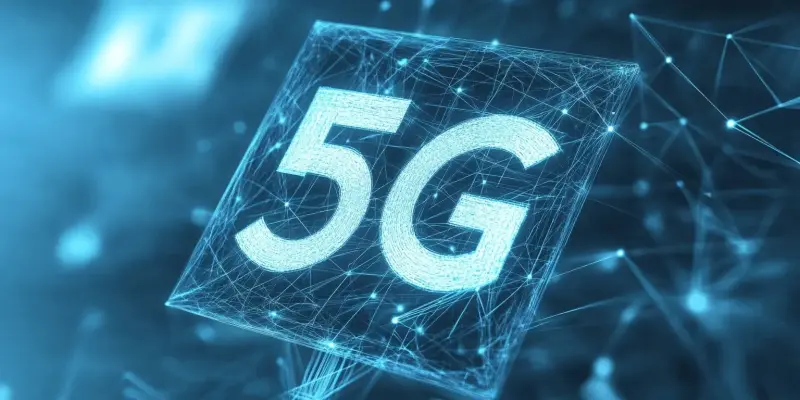In a groundbreaking move to enhance connectivity across Italy, major telecommunications companies Nokia and EOLO have launched the country’s first 5G Standalone (SA) millimeter wave (mmWave) network. This innovative project aims to deliver high-speed Fixed Wireless Access (FWA) services to underserved communities by employing the cutting-edge mmWave spectrum. The collaborative effort underscores a mutual drive to bridge the digital divide and bring reliable, high-speed internet to regions where fiber deployment remains a challenge.
Nokia’s Advanced AirScale Portfolio and Shikra mmWave Solution
Enhancing Connectivity with AirScale and Shikra Technologies
Nokia has played a pivotal role in the deployment of Italy’s first 5G SA mmWave network, utilizing its advanced AirScale portfolio and Shikra mmWave radios. The AirScale portfolio incorporates state-of-the-art solutions designed to deliver premium 5G capacity and quality service. One of the standout features introduced by Nokia is the Shikra mmWave solution, which includes an outdoor receiver that conveniently capitalizes on low-cost mmWave spectrum.
The Shikra solution’s outdoor receiver is particularly significant as it facilitates the delivery of high-speed and reliable wireless broadband. This is especially pertinent in areas where the deployment of fiber infrastructure is both technically and economically unfeasible. By leveraging the mmWave spectrum, Nokia’s Shikra solution ensures that these underserved communities gain access to broadband services that might otherwise be inaccessible, thereby supporting digital inclusivity.
Moreover, Nokia’s comprehensive approach in providing innovative connectivity solutions extends to its FastMile FWA receivers. These receivers are designed to complement the Shikra mmWave radios, enhancing overall network performance and reliability. The combination of AirScale, Shikra, and FastMile technologies underscores Nokia’s commitment to revolutionizing the telecom sector and meeting the diverse connectivity needs across various regions, thus propelling Italy to the forefront of digital modernization.
Strategic Partnership and Market Leadership
The deployment of the 5G SA mmWave network stands as a testament to the strategic partnership between Nokia and EOLO. EOLO, known for its market leadership in Italy’s Fixed Wireless Access sector, has consistently pioneered efforts to enhance connectivity. As the first Benefit Corporation in the telecommunications industry, EOLO’s collaboration with Nokia reflects a shared vision of technological advancement and corporate responsibility.
This landmark network installation aligns seamlessly with EOLO’s strategic objectives to develop a robust FWA network capable of delivering speeds up to 1 Gbps. By focusing on regions where fiber-to-the-home technology is limited or non-existent, EOLO is taking significant strides in bridging the digital divide. This initiative not only enhances user experience but also fosters socio-economic development in underserved rural and suburban communities.
Key to this partnership is Nokia’s President of Mobile Networks, Tommi Uitto, who emphasized the innovative nature and world-class service quality brought by Nokia’s connectivity solutions. His remarks highlight the significant potential that this collaboration will unlock for Italy’s telecom landscape, paving the way for more comprehensive and inclusive digital services.
EOLO and Fastweb: Expanding FWA and Fiber Services
Leveraging Strategic Infrastructural Collaborations
The relationship between EOLO and Fastweb also plays a crucial role in extending the reach and capabilities of the newly deployed 5G SA mmWave network. Earlier cooperation between the two companies focused on combining their infrastructure to create a more extensive and efficient network. This strategic alliance leverages Fastweb’s 26 GHz spectrum, acquired during the 2018 5G auction, alongside EOLO’s established infrastructure to fortify Italy’s FWA and fiber services.
This synergistic partnership expands both companies’ service footprints, ensuring that more users benefit from high-speed internet, whether through FWA or fiber connections. The infusion of Fastweb’s spectrum resources is particularly significant in enhancing the capacity and speed of FWA services provided by EOLO. Additionally, EOLO’s access to Fastweb’s fiber infrastructure opens up new avenues for offering improved connectivity options, thereby addressing diverse user needs more effectively.
The joint efforts of EOLO and Fastweb signify a major advancement in Italy’s telecommunications infrastructure. This collaboration not only facilitates the rapid deployment of next-generation networks but also establishes a foundation for sustained innovation and service quality. By integrating their respective strengths, the two companies are well-positioned to set new benchmarks in connectivity and customer satisfaction across Italy.
Impact on Digital Inclusivity and Future Prospects
Nokia and EOLO have made a significant leap in enhancing connectivity across Italy by launching the country’s first 5G Standalone (SA) millimeter wave (mmWave) network. This innovative initiative aims to provide high-speed Fixed Wireless Access (FWA) services, targeting underserved and remote communities. Utilizing mmWave spectrum technology, this project seeks to deliver reliable, high-speed internet where traditional fiber deployment has proven challenging.
This collaboration between Nokia and EOLO highlights a shared commitment to bridging the digital divide, ensuring that even the most isolated regions can benefit from advanced connectivity solutions. By leveraging the potential of 5G technology, they hope to bring about a transformative change in Italy’s telecommunications landscape, promoting greater digital inclusivity and efficiency. This development is expected to play a crucial role in boosting productivity, enhancing education, and fostering social and economic growth in areas that have long been overlooked. This marks a pivotal moment in Italy’s commitment to digital advancement.

